Stress is the world’s most prevalent health risk, and music therapy is an effective treatment for stress and other mental and physical health issues, including anxiety disorders, depression, cardiovascular diseases, skeletal and muscular diseases, and more.
Highlights:
- Music can help with cognitive functioning, pain management, and emotional healing.
- Music can be used to create a soothing environment or as an outlet to release emotions.
“Music can name the unnameable and communicate the unknowable” – Leonard Bernstein
Music has been used to heal the soul and mind since ancient Greek times. There are more than 1,800 songs that are used for healing purposes in native American culture. During World War I and II, music therapy was also used for veterans suffering from emotional and physical trauma. Likewise, it has been used with military populations for some time. According to the World Health Organization (WHO), stress is currently the world’s most pronounced health risk, leading to constant burnout, agitation, helplessness, exhaustion, fear, and, eventually, a weak immune system or even organ damage (Edmond, 2020). The inability to cope with stress is a risk factor for epidemiologically significant illnesses such as depression, cardiovascular diseases, skeletal/muscular diseases, or anxiety disorders. Stress and other psychological health problems probably affect the mortality risk of healthy individuals. Furthermore, the effect is not only faced by adults: a comparative study of the WHO found that children and adolescents are frequently exhausted, face problems falling asleep and are increasingly irritated due to stressful school and life conditions (Rosen, 2018; Edmond, 2020).
The Music and Healing Framework
“When words fail, music speaks” Hannah Williams
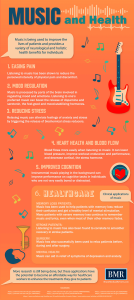
Music and health are among the most rapidly growing research areas in music cognition. Scholars in psychology, neuroscience, psychoneuroendocrinology, and public health have taken an interest in investigating cultural activities of music, such as music as a source of health, healing, or wellbeing (e.g., Ulbricht, 2013). Music therapy is clinically used as evidence for musical-based interventions to improve clients’ quality of life. Music therapists use music to help improve physical suffering, mental and emotional wellness, social interactions, and aesthetic spirituality— also to help clients improve their health and educational domains by using active music experiences. Today, music therapy is recognized as an effective treatment for several physical and mental health conditions and has improved the quality of life for many of us. In addition, it is one of the most commonly used resources for self-regulation to maintain and increase positivity and decrease or replace negative feelings (e.g., state anxiety, melancholy, helplessness, loneliness, etc.) (Linnemann, 2018). While stress is a prevalent epidemic in this modern era, that does not mean that it is right or that you must live that way. Music has always had such a vast and versatile role in our society and has been a part of cultures across the world, spanning all eras. Also, several psychological, neurological, and biochemical pathways are involved in the processing and responding to music, and some of these capture music’s stress-reduction effect quite well. Music perhaps helps improve concentration, elevate mood, enhance the immune system, enhance focus, reduce blood pressure, reduce depression, and improve sleeping patterns (Baltazar et al., 2019; Martin, 2018).
How Can Music Therapy Work? – My Healing Experience
Nowadays, music has never been so easily accessible, with all kinds of artists available with a few taps in a search bar. The interplay of rhythm, melody, and harmony stimulates the senses of a person and ensures calmness by slowing down the heart rate and other bodily functions (Collins, 2021). I am not writing this up only to have a good discussion; rather, this is what I experienced recently. We all are aware of the term “music heals,” and unlike many of you, it was more than just another term for me after I faced that nagging pain from which there was no escape. Because of issues with reaching out, social connections, recognizing emotions and sentiments, etc., mental illness is portrayed in this society as a challenging obstacle; however, my experience with my mental health has taught me so much. It is essential to share my story and experience to help other people who are/were probably going through the same thing and cannot find a way to escape or improve their conditions. There is this perception in this world that if you have everything—money, family, friends—then why should you be depressed? Understanding depression or any mental illness, why it happens, and how one can conquer it is essential. It is a condition beyond our control, and the triggers could differ for different people. But it is something that came very unexpectedly for me. It is a different feeling (like not a regular normal sadness) with a strange emptiness in her stomach, a heavy, exhausted feeling in the chest, and constant deep negative thoughts. The hardest part was not being able to talk/express yourself to anybody because no words could explain that feeling.
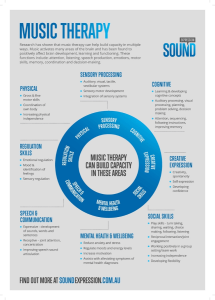
I knew what I was feeling but communicating was not effortless. I was scared to wake up each day because sleep was the only comfort; it was my escape. Waking up, facing people, and talking to them was tough. Breaking down at any point was so common that it would not even take a second for me to fall apart into tears. It took a lot of effort to show that everything was fine. My family was suffering too because of my situation, which made it even worse. It was essential for me to keep smiling and give positive energy to the people around me. However, this faking attitude was the hardest part, so it was time to find a solution that could save me from this disaster. There is always a solution to every problem, and at that time, music was my solution. Music helped me to relax, calm down, and de-stress my days. Music therapy allowed me to live a mentally healthy life again and was indeed end-of-life care for me.
Allow things in your life that make your heart sing, feed your soul, or nourish you daily. Find your therapy to deal with your low moments or use music as a therapist.
Works Cited
Baltazar, M., Västfjäll, D., Asutay, E., Koppel, L., & Saarikallio, S. (2019). Is it me or the music? Stress reduction and the role of regulation strategies and music. Music & Science, 2, 2059204319844161.
Collins, D. (2021). The Power of Music to Reduce Stress. Psych Central. Retrieved 1 April 2022, from https://psychcentral.com/lib/the-power-of-music-to-reduce-stress/.
Edmond, C. (2020). Here’s how to cope with stress, according to the World Health Organization. The American Institute of Stress (AIS). Retrieved 11 May 2022, from https://www.stress.org/heres-how-to-cope-with-stress-according-to-the-world-health-organization.
Linnemann, A., Wenzel, M., Grammes, J., Kubiak, T., & Nater, U. M. (2018). Music listening and stress in daily life—a matter of timing. International Journal of Behavioral Medicine, 25(2), 223-230.
Martin, L., Oepen, R., Bauer, K., Nottensteiner, A., Mergheim, K., Gruber, H., & Koch, S. C. (2018). Creative arts interventions for stress management and prevention—a systematic review. Behavioral Sciences, 8(2), 28.
Rosen, A. (2018). How Stress Affects Child Development. The Center for Treatment of Anxiety and Mood Disorders. Child Anxiety. Retrieved 21 April 2022, from https://centerforanxietydisorders.com/stress-affects-child-development/.
Ulbricht, C. (2013). Music Therapy for Health and Wellness. Psychology Today. Retrieved 1 April 2022, from https://www.psychologytoday.com/us/blog/natural-standard/201306/music-therapy-health-and-wellness.


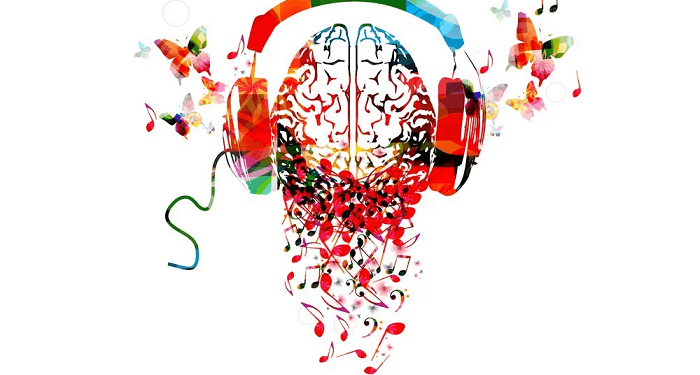
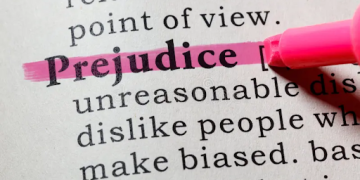

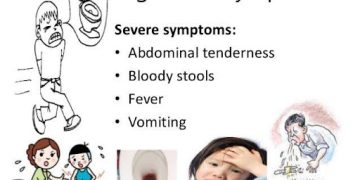




Discussion about this post